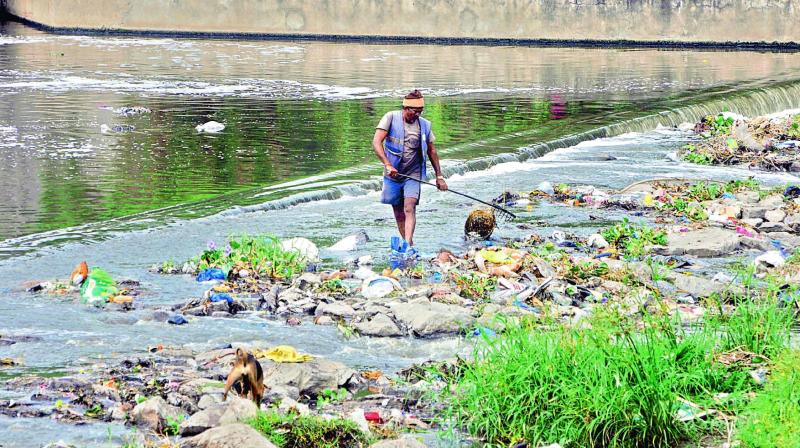Hyderabad: Antibiotics in rivers can affect treatment
Increasing resistance of pathogens poses danger.

Hyderabad: An assessment of 72 rivers around the world has found antibiotic pollution in rivers and soil to be a global health emergency.
The study shows that pathogens that originate from environmental bacteria are becoming resistant to antibiotics, and this resistance is becoming a major challenge in treating patients in the intensive care unit of hospitals.
Contamination of rivers and land soil with antibiotics is caused by the discharge of untreated medical waste into domestic sewers and aggravated by the lack of a sufficient number of waste management treatment plants.
The study carried out in 2017 and published in the journal Nature showed that multi-drug resistant pathogens in the form of gram-negative bacteria were found in high concentrations in the wastewater in Hyderabad — primarily in the Musi river.
Similarly, a three-year study conducted in various parts of India found high concentrations of E.coli in rivers, caused by the mass bathing carried out in the rivers.
Other antibiotics, like ciprofloxacin — used to treat skin and urinary tract infections, have also been found to be present in high concentrations in Indian waters as a result of untreated industrial, hospital, and sewage effluents.
Soil contamination was predominantly noted in dumping yards and was found to be aggravated by the lack of effective waste management and disposal methods.
Antibiotic-resistant bacteria were found predominantly in the soil and groundwater close to dumping grounds.
Environmental engineers explained that improper handling and disposal of the waste had caused the antibiotic levels in water and soil to rise, thereby causing the bacteria to become resistant to the life-saving medications.
Dr K.K. Aggarwal, a senior member of the Indian Medical Association, said, “There are 12 classes of resistant bacteria, and these have further been classified into critical, moderately critical, and safe.
“This increasing resistance essentially entails a growing challenge in treating diseases at the intensive care unit level.”
A senior officer from the Telangana State Pollution Control Board said, “Our lakes have become a dumping ground for sewage, and this has to change. We need more wastewater treatment plants so as to ensure that only treated water is being let out into rivers and lakes.”

